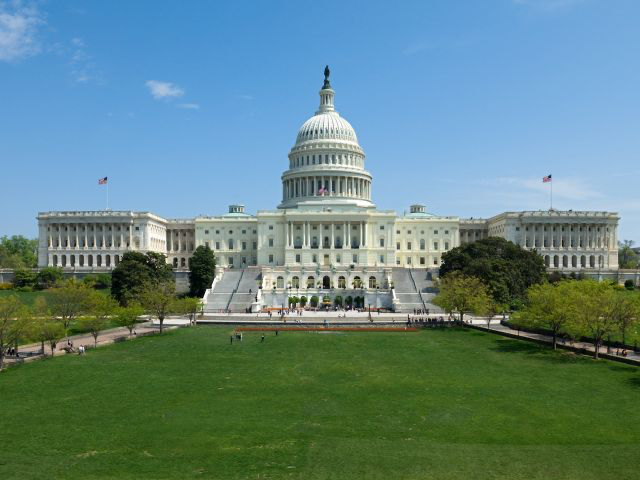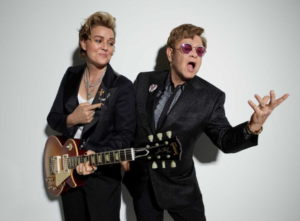What I Wish I Knew as a Politics Major

Image courtesy of AOC.gov
By Fernando Cordova
Living in the nation’s capital, it’s hard to ignore the political scene since this is the headquarters of the world’s most powerful democracy. From interning on Capitol Hill, attending Presidential inaugurations to visiting the embassies on Embassy Row, students in D.C. have the unique opportunity to see politics play out firsthand. Politics majors are in a unique position because not only are they being taught in the nation’s capital, but they are also learning in a city that embodies precisely what they are studying.
Politics majors at Catholic University have the opportunity to study politics in our nation’s capital while also gaining knowledge on the different aspects of government. Students in the politics program can choose between three concentrations that will further their understanding of politics while seeing that the subject is more than just about what goes on here in the district. The three concentrations are American government, world politics, and political theory. Also, the politics department provides students with the opportunity to accompany their degree with either a minor of their choosing and a variety of certificate programs. The department promotes the pre-Law minor for those thinking about law school and highlights the Intelligence Studies certificate, which allows students to explore a topic that is very much intertwined with politics.
As part of the School of Arts and Sciences, politics majors must take courses in philosophy, modern languages, mathematics, science, theology, and the classes that satisfy the requirements for the concentration of their choosing. Freshman politics majors take “Introduction to American Government” and “Introduction to Comparative Politics” during their first two semesters at CUA. By the time sophomore year rolls around, they take “Introduction to Political Theory” and can start taking courses more closely related to their concentration. If students are pursuing the concentration in world politics, then they are also required to take “Introduction to International Relations,” ideally during their sophomore year. Students must do well in these core classes, mainly because they lay out the foundation for other politics courses that are offered.
Regarding classes explicitly offered by the Politics Department, there is a wide variety that students can choose from other than the introductory courses listed. From classes covering particular aspects of American government to certain philosophies behind modern political thought, students have the opportunity to expand their knowledge and understanding of politics as a whole.
Junior Politics major Benjamin Kelley is currently taking politics 405 otherwise known as National Elections.
“In such a polarized country, it is important to have the skills necessary to think objectively without getting your own biases involved,” Kelley said. “A key part of politics is being able to think analytically and see what is going on from a non-partisan standpoint. POL 405 teaches just that.”
In addition to the variety of courses that politics majors can take, students also have the opportunity to use what they learn in the classroom and put their skills to the test. Studying politics in the nation’s capital is a hub for learning through many career and internship opportunities. From interning on Capitol Hill, assisting advocacy organizations, to working for think tanks, politics majors have the unique opportunity to experience what they learn in the classroom firsthand. Some of the most popular internship opportunities that politics majors tend to seek out are on the aforementioned Capitol Hill, home to our nation’s legislative body.
“Working for Congressman Richard Neal (MA-1) was one of the most valuable experiences in my political education,” said senior politics major Will Lucardi.. “I got to watch the government function and be a small part of that by communicating with various congressional offices, obtaining signatures for co-sponsored legislation, and assisting constituents with their needs. It was especially nice for me, as I grew up in the first congressional district of MA.”
Aside from the internship opportunities that D.C. offers, politics majors also can attend different political lectures and events around the city that are great opportunities to keep learning outside of the classroom. From workshops at think tanks like the Heritage Foundation, attending lectures at other universities, to even getting to hear from speakers hosted by CUA’s College Democrats and College Republicans, politics majors have a wide variety of opportunities to expand their political knowledge. It is widely suggested that politics majors attend Congressional Hearings during their time in D.C. Hearings on Capitol Hill are a great opportunity to network, meet members of Congress, and to see the nation’s legislative body fulfill its duties firsthand.
Another perk of being a part of the Politics program at Catholic U is receiving the monthly newsletters from the politics department. With the newsletters, the politics department at Catholic U ensures that all students are taking advantage of their major by outlining what’s going on within the department, highlighting different resources, accomplished students and faculty members, and advertising internship and career opportunities. Also, to create more transparency, the department sponsors the Politics Liaison Council, which comprises student representatives from each class. Its job is to act as a liaison between the department and their respective classes. It is recommended that all politics majors reach out to their respective liaisons. The council is a great resource when it comes to course registration, class advice, mentorship, etc.
Despite the polarization in today’s climate and the pandemic, both of which have made politics a touchy subject, studying and analyzing different topics relating to politics is still fascinating. This major not only allows students to think critically about the world around them but also grants opportunities to be politically involved on and off campus.
From funding universities to passing specific laws, politics has a massive presence in our lives. Whether or not people perceive that presence to be good or bad, politics majors are in a unique position of understanding the hows and whys behind what gets done in government and the decisions that are made.






